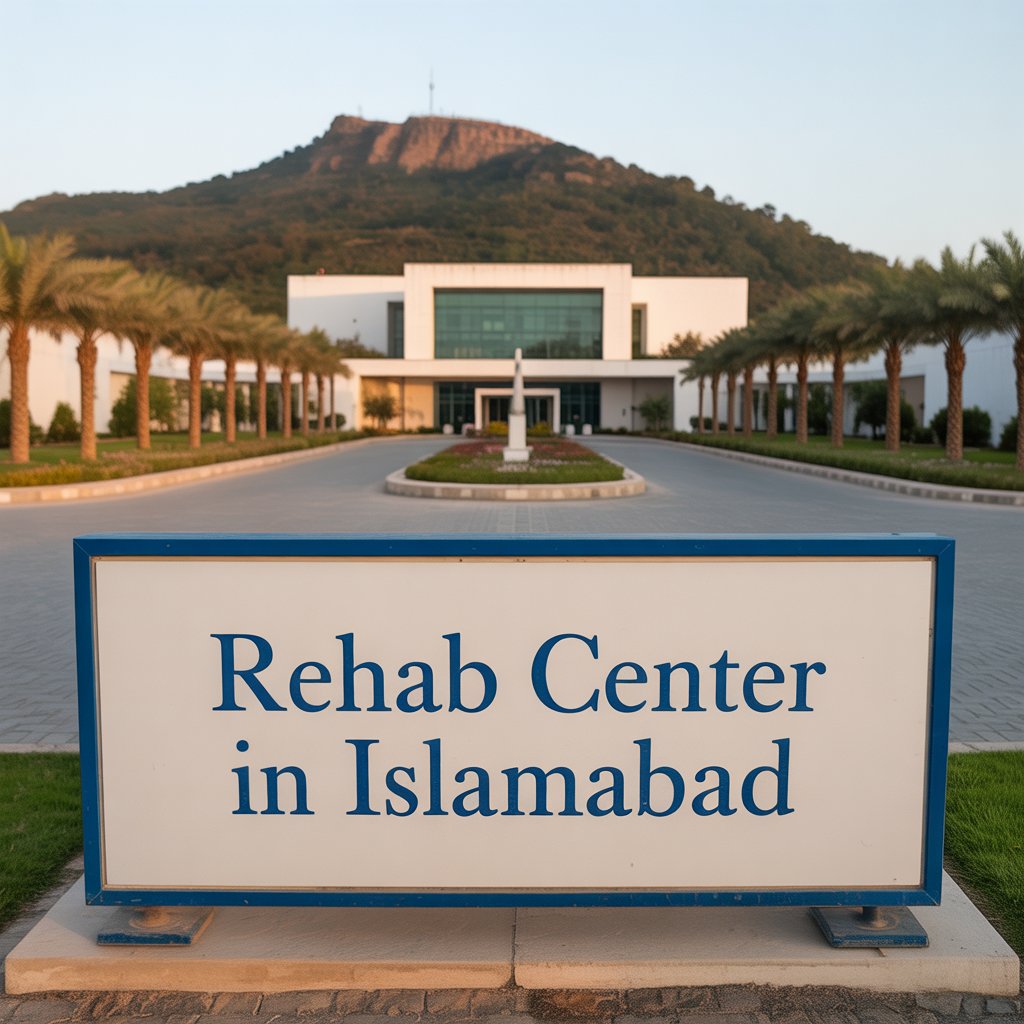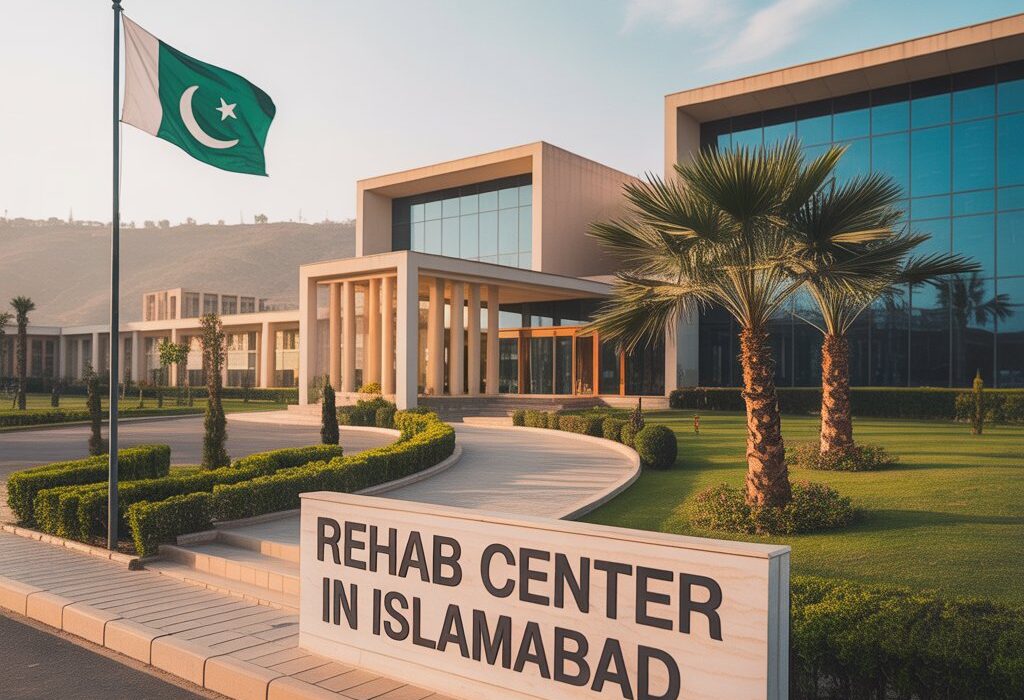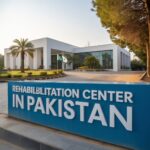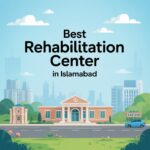Your Guide to a Premier Rehab Center in Islamabad
The decision to seek help for addiction or a mental health condition is a courageous and life-changing one. It is a step toward reclaiming control, health, and happiness. For individuals and families in the capital, finding the right support system is paramount. This is where the role of a trusted Rehab Center in Islamabad becomes critical. Such a facility provides more than just treatment; it offers a structured, compassionate, and professional environment for holistic healing. Essentially, the right Rehab Center in Islamabad acts as a sanctuary where individuals can disconnect from triggers and focus entirely on their recovery journey, building a foundation for a sustainable, substance-free future.
Understanding what constitutes effective rehabilitation is the first step toward making an informed choice. Consequently, this guide will explore the essential components, therapeutic approaches, and supportive frameworks that define a premier Rehab Center in Islamabad.
Understanding the Need for Specialized Rehabilitation
Addiction is a complex disease that affects the brain, body, and spirit. It is not a matter of willpower or moral failing. Therefore, overcoming it requires specialized, medical, and psychological intervention that goes beyond simple detoxification. A comprehensive Rehab Center in Islamabad is designed to address this complexity. It tackles the underlying causes of addiction, such as trauma, co-occurring mental health disorders like depression or anxiety, and maladaptive behavioral patterns. Without addressing these root issues, the risk of relapse remains high. Professional rehabilitation provides the tools and coping strategies needed to manage these challenges long-term.
The Core Components of an Effective Rehab Center in Islamabad
What truly differentiates a standard facility from a transformative one? Several key pillars define the framework of a top-tier Rehab Center in Islamabad.
1. A Multidisciplinary Team of Experts
Firstly, successful recovery is supported by a diverse team of healthcare professionals. A leading Rehab Center in Islamabad employs:
- Psychiatrists: Medical doctors who can diagnose co-occurring mental health conditions and manage medication-assisted treatment (MAT).
- Clinical Psychologists: Experts who provide individual and group therapy to uncover root causes and modify destructive thought patterns.
- Certified Addiction Counselors: Professionals who offer guidance, support, and practical recovery strategies.
- Registered Nurses: They ensure 24/7 medical monitoring, especially during the critical detox phase.
- Nutritionists and Wellness Coaches: These team members help rebuild physical health, which is often severely compromised by addiction.
2. A Structured and Personalized Treatment Plan
There is no universal solution for recovery. Each individual’s journey is unique. Upon admission, a comprehensive assessment is conducted at a quality Rehab Center in Islamabad. This evaluation covers physical health, psychological state, and social circumstances. Subsequently, a fully personalized treatment plan is created. This plan outlines specific, measurable goals and integrates various therapeutic modalities tailored to the individual’s needs. It is a living document, regularly reviewed and adjusted as the person progresses through their recovery.
3. Evidence-Based Therapeutic Modalities
Modern rehabilitation relies on scientifically proven therapies. A reputable center will offer a blend of the following:
- Cognitive-Behavioral Therapy (CBT): This therapy helps individuals identify and change negative thinking patterns and behaviors related to their substance use.
- Group Therapy: Facilitated by a therapist, these sessions provide peer support, reduce feelings of isolation, and allow individuals to learn from the experiences of others.
- Individual Counseling: This offers a private space for deep, one-on-one work on personal trauma, triggers, and emotional challenges.
- Family Therapy: Addiction affects the entire family system. Involving family members in therapy helps repair relationships, educates loved ones, and establishes a supportive home environment for post-rehab life.

The Phases of the Rehabilitation Journey
The path to recovery within a professional facility is typically structured in clear, phased stages.
Phase 1: Medical Detoxification
The first step is often medical detox, where the body is cleared of addictive substances. This process can be physically and emotionally challenging, with potential withdrawal symptoms. In a professional setting, detox is medically managed. This means medications may be used to alleviate discomfort and ensure safety, making the process more humane and less daunting.
Phase 2: Inpatient Rehabilitation
Following detox, the core therapeutic work begins during inpatient rehab. Clients reside at the facility, participating in a highly structured daily schedule of therapy, counseling, wellness activities, and educational workshops. This immersive environment is designed to remove external triggers and allow for intensive focus on healing. The supportive community built among peers and staff is a powerful source of motivation and strength.
Phase 3: Aftercare and Relapse Prevention
Recovery does not end upon discharge from the inpatient program. A premier Rehab Center in Islamabad will have a robust aftercare program. This is a critical component for long-term success. Aftercare typically includes ongoing outpatient therapy, support group meetings, and regular check-ins. A solid relapse prevention plan is also developed, equipping the individual with strategies to navigate high-risk situations and cravings in the real world.
Choosing the Right Facility for You or Your Loved One
Selecting a rehabilitation center is a deeply personal decision. Key factors to consider include the center’s accreditation, the qualifications of its staff, the types of therapy offered, and the availability of aftercare support. It is highly recommended to schedule a visit or consultation to ask questions and gauge the environment. The right fit—a place that feels safe, professional, and aligned with personal values—can significantly impact the recovery experience.
Conclusion: A Step Toward a New Beginning
Embarking on the path to recovery is an act of profound strength. By choosing a reputable Rehab Center in Islamabad, individuals are not just accessing treatment; they are investing in a renewed life of purpose, health, and connection. These centers provide the essential framework, expert guidance, and compassionate support needed to navigate this challenging journey. Ultimately, the goal is sustainable recovery, empowering individuals to return to their communities as healthier, more resilient versions of themselves.
Frequently Asked Questions (FAQs)
1. What is the typical duration of a rehab program?
Program lengths vary, but a standard inpatient program often lasts from 30 to 90 days. The ideal duration is determined by the initial assessment and depends on the individual’s specific needs and progress.
2. How is patient confidentiality maintained?
Reputable rehab centers in Islamabad adhere to strict patient confidentiality protocols, in line with international medical ethics. Your privacy and personal information are protected throughout your treatment journey.
3. Do you treat co-occurring mental health disorders?
Yes, the most effective treatment addresses both addiction and any co-occurring conditions like depression, anxiety, or PTSD simultaneously. This integrated approach, known as dual diagnosis treatment, is a standard offering at quality centers.
4. What does a typical day in rehab look like?
Days are structured and therapeutic, typically including a mix of individual counseling, group therapy sessions, wellness activities (like yoga or exercise), educational workshops, and dedicated personal reflection time.
5. Is family involvement encouraged in the process?
Absolutely. Family support is a crucial component of recovery. Most centers offer family therapy sessions and educational programs to help heal relationships and create a strong, understanding support system for when the patient returns home.




